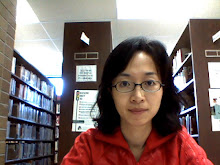Victor's hugo's mentioning, "The one will kill the other." gave me a basic insight of understanding the impact of printing press, diminishing role of architecture as a tool of expression, and Hugo's interpretations of this historical event by dealing with church of Notre Dame.
As we can see from the picture of cathedral of Notre Dame, it has the facade of divided into three, which means 'holy father, holy son, and holy spirit' and has many statues, sculptures, and drawings which represents the stories of the bible. It's such a paradime shift to me, from the paper or screen book to the building as a book.
Definitely, the people must have been overwhelmed by the huge scale and sacred envrionment of building and made them absorb the content of the building, the story of God. When they walked inside of the church, they received the knowledge of the God and tried to remember what they saw, connecting the parts of the building into the story. ( When we think about mnemonic devices for remembering, using building, order, and image, it really makes sense to me in a way. Like by the image in a certain place, people can remember some contents. - My mother is visiting here from Korea and doesn't know English almost at all, but she can remember all the places , reminded by some landmark buildings, and can drive and go anyplace, not reading English signs.)
As there came out a lot of things to remember more specific Christian doctrines, or things to do or not to do, the building was not enough to hold and convey all those things to remember. Then, here comes Gutenberg, inventor of printing press. It is such a cost saving product, which could save time, money, and space, comparing to the expense of constructing a building.
People must've felt thrilled by experiencing their own individual reading, holding the book and meditating some contents and kept reading, and even transferring the content to somebody else just as a book.
If we think about ' the damage of religious unity or degrading status of church of Notre dame, I can understand why Hugo mentions, "The one will kill the other". He may have felt some negative emotion of what was happening at that time, but did he expect by his literature, 'The Hunchback of Notre Dame', there was huge revival movement of Gothic architecture? Also, did he expect as the tool of communication was changed, printing press brought us a totally unexpected new world?
Currently, many people are worried about the negative impact of new technology as a way of communication, like the people in the cave blame all tough process to the outside of the cave, but I think there have always been frontiers who can see the future and has led most people into new world. The important thing is that how much the frontier can persuade or educate common people to follow them and we should be alert about the side effect of new technology and try to improve it to better world.
Joohee
People must've felt thrilled by experiencing their own individual reading, holding the book and meditating some contents and kept reading, and even transferring the content to somebody else just as a book.
If we think about ' the damage of religious unity or degrading status of church of Notre dame, I can understand why Hugo mentions, "The one will kill the other". He may have felt some negative emotion of what was happening at that time, but did he expect by his literature, 'The Hunchback of Notre Dame', there was huge revival movement of Gothic architecture? Also, did he expect as the tool of communication was changed, printing press brought us a totally unexpected new world?
Currently, many people are worried about the negative impact of new technology as a way of communication, like the people in the cave blame all tough process to the outside of the cave, but I think there have always been frontiers who can see the future and has led most people into new world. The important thing is that how much the frontier can persuade or educate common people to follow them and we should be alert about the side effect of new technology and try to improve it to better world.
Joohee

I think Hugo is worried about what might be lost in the transition to print. As you point out, general anxiety about new tech is common, and I think the question of what might be lost is often a big part of that anxiety. Just think of all the worries about what we might lose if people stop reading books or if newspapers no longer print on paper? Do you think these concerns about what is lost are important, or are they limiting?
ReplyDelete